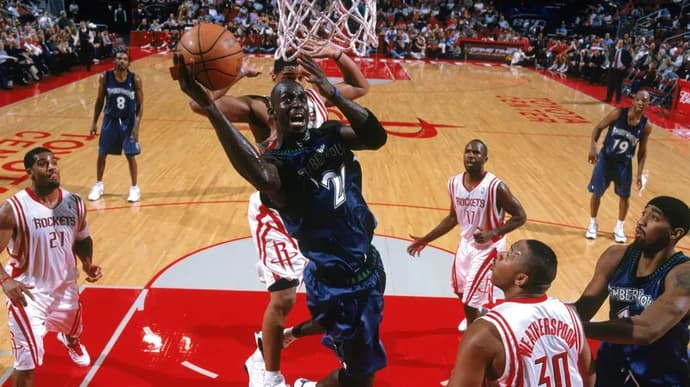
Comparing Player Performance Metrics in Esports and Fantasy Basketball

Player performance metrics are essential in esports and fantasy basketball. They shape how players are evaluated and how strategies are formed. While both rely on data to measure success, the metrics reflect the unique dynamics of each game.
From analyzing a League of Legends star to assessing an NBA fantasy MVP like Nikola Jokić, the similarities and differences in these metrics offer fascinating insights into these two worlds.
The Foundation of Metrics in Competitive Play
Metrics are tools for understanding, evaluating, and predicting performance. Their role is unique given the contrasting nature of esports and fantasy basketball.
Esports Metrics
Esports performance metrics heavily track precision, teamwork, and strategy. For instance, in MOBA games like League of Legends or Dota 2, stats such as Kill-to-Death Ratio (KDA), creep score (CS), and objective control (like tower or dragon kills) are vital.
These metrics provide insights into how well a player contributes to their team’s overall success.
Additionally, metrics like Per-Minute Kill Participation reflect a player’s impact within the match’s pacing.
Fantasy Basketball Metrics
Fantasy basketball focuses on real-world stats that translate directly into fantasy points. Categories like points scored, rebounds, assists, steals, and blocks are the bread and butter here.
Advanced stats like Player Efficiency Rating (PER) and Usage Rate add layers, helping managers select players who will deliver consistent results across matchups.
Contextualizing these numbers in the framework of NBA Fantasy Sports ensures that fantasy players get actionable knowledge for lineup adjustments.
Key Similarities Between Esports and Fantasy Basketball Metrics
Despite the differences, esports and fantasy basketball metrics share these commonalities:
1. Decision-Making Tools
Both industries utilize metrics to make critical decisions. For instance, professional esports coaches analyze player analytics before tournaments to finalize a roster or develop a tailored strategy. Similarly, fantasy basketball managers evaluate game-by-game player stats to adjust their teams for optimal points.
2. Quantifying Impact
Player impact is key in both realms. Whether it’s executing perfect skill shots or scoring clutch three-pointers, both industries rely on data to identify high-performing individuals. Advanced tools like machine learning models are being explored in both esports and fantasy basketball to analyze and predict future performance trends.
3. Community Engagement
Data has fueled deeper fan engagement in both industries. Leaderboards, weekly rankings, and win probabilities are standard in esports tournaments and NBA Fantasy Sports, inviting fans to interact with live metrics while fostering excitement and healthy competition.
How Metrics Differ Between Esports and Fantasy Basketball
1. Game Complexity
Esports metrics are often directly tied to battle mechanics and gameplay decision-making moments. Metrics like Damage Per Minute (DPM) matter specifically to the game’s win conditions. Meanwhile, fantasy basketball metrics align with more traditional statistical factors like point accumulation, making them immediately understandable even to casual fans.
2. Team Environment Weighting
An esports player's entire output is more intrinsically tied to their team's synergy. For instance, a mid-laner in LoL may not shine statistically if their jungler is underperforming. By contrast, fantasy basketball players like Stephen Curry can post star-level stats even when their Golden State Warriors teammates miss the mark. Fantasy basketball awards and punishes individual achievements in isolation far more heavily.
3. Technology-Driven Analytics
Esports take a deeply technological approach. The availability of data from gaming APIs allows analysts to track split-second actions in real-time. While increasingly tech-enabled, fantasy basketball is governed by traditional box scores and historical data. This difference stems from esports being natively built within a digital framework, whereas basketball carries a legacy steeped in analog traditions.
Why Metrics Matter for Fans and Data Analysts
Whether you're a fantasy basketball guru or a die-hard esports enthusiast, metrics offer critical value:
1. Deeper Player Insights
They give hardcore stats fanatics an edge, whether that's deciphering how often LeBron James executes triple-doubles or how often Faker outplays the enemy in-game.
2. Enhanced Viewer Appreciation
Understanding performance data enhances enjoyment for fans. Knowing that your fantasy player's PER is rising mid-season or that your favorite Overwatch player dealt the most ultimate damage in a match makes spectating more interactive.
3. Rewarding Strategy
Fans and players alike appreciate competition that rewards sound strategy over luck. Metrics add another layer of rationale, where well-researched decisions lead to stronger outcomes.
Final Thoughts
Metrics in esports and fantasy basketball are key to strategy and fan engagement. In esports, they drive victory; in fantasy basketball, they turn casual fans into informed managers.
By mastering these stats, fans and analysts can improve outcomes, whether climbing NBA Fantasy ranks or following the latest in NBA news and esports.

Elen Stelmakh est une personne créative qui se consacre à l'avancement de la culture des jeux vidéo par le biais d'articles et de conceptions visuelles. En tant qu'auteur d'EGamersWorld et concepteur d'un site Web de jeux à temps plein, Elen ne se contente pas de créer du contenu, elle y insuffle également de l'énergie et de la créativité.
 Codes Roblox Anime Guardians février 2026Découvrez tous les codes Roblox Anime Guardians. Échangez-les contre des pièces mystiques gratuites, des relectures de traits, des artefacts et des récompenses.
Codes Roblox Anime Guardians février 2026Découvrez tous les codes Roblox Anime Guardians. Échangez-les contre des pièces mystiques gratuites, des relectures de traits, des artefacts et des récompenses. Casinos en ligne hors Royaume-Uni : Jeux, formats, et ce à quoi les joueurs peuvent s'attendreLes casinos en ligne opérant en dehors du cadre des jeux d'argent du Royaume-Uni attirent l'attention en raison des différences dans les modèles de licence, les portefeuilles de jeux et les...
Casinos en ligne hors Royaume-Uni : Jeux, formats, et ce à quoi les joueurs peuvent s'attendreLes casinos en ligne opérant en dehors du cadre des jeux d'argent du Royaume-Uni attirent l'attention en raison des différences dans les modèles de licence, les portefeuilles de jeux et les... Casinos en bitcoins et plateformes de jeux en cryptomonnaies pour les joueurs britanniquesLes plateformes de jeu basées sur les cryptomonnaies sont devenues un segment important du marché mondial des casinos en ligne.
Casinos en bitcoins et plateformes de jeux en cryptomonnaies pour les joueurs britanniquesLes plateformes de jeu basées sur les cryptomonnaies sont devenues un segment important du marché mondial des casinos en ligne. Les meilleurs casinos internationaux en ligne pour les joueurs britanniquesL'industrie des casinos en ligne est un secteur en pleine expansion, reconnu pour sa technologie, sa vaste bibliothèque de jeux et le montant des revenus qu'elle génère....
Les meilleurs casinos internationaux en ligne pour les joueurs britanniquesL'industrie des casinos en ligne est un secteur en pleine expansion, reconnu pour sa technologie, sa vaste bibliothèque de jeux et le montant des revenus qu'elle génère....


